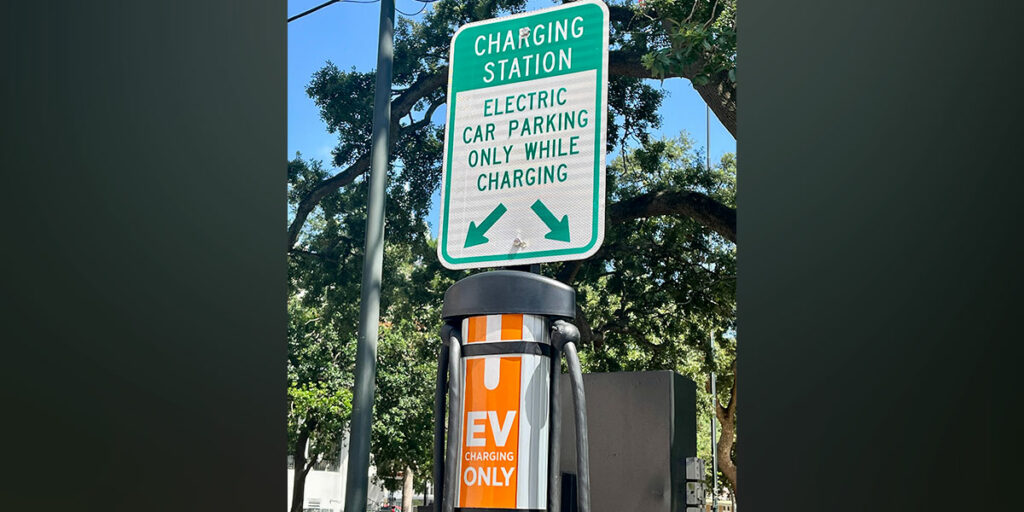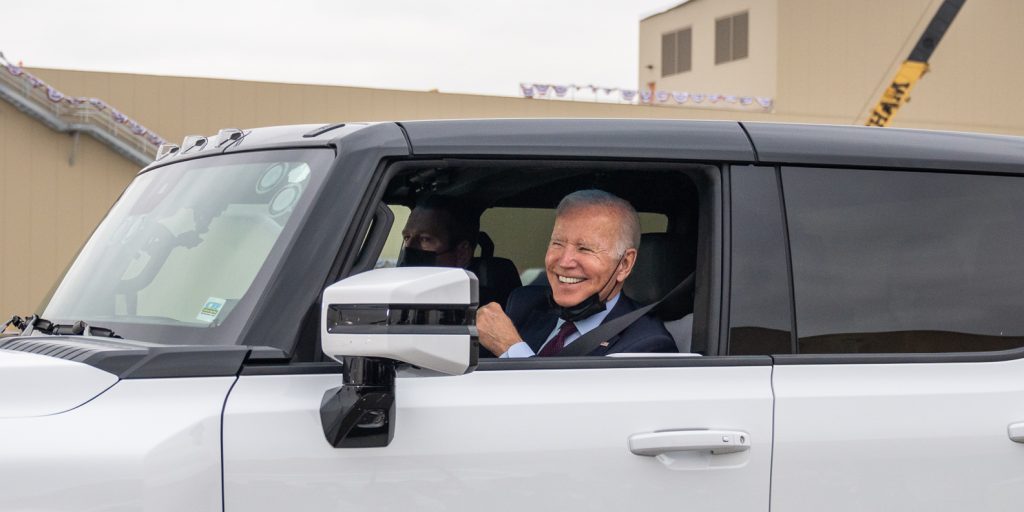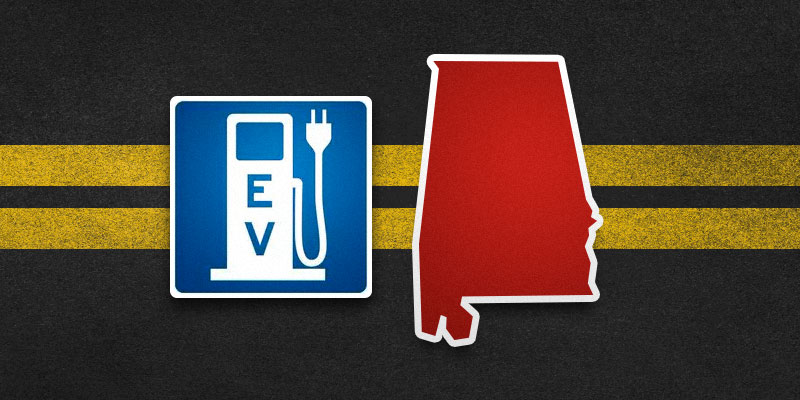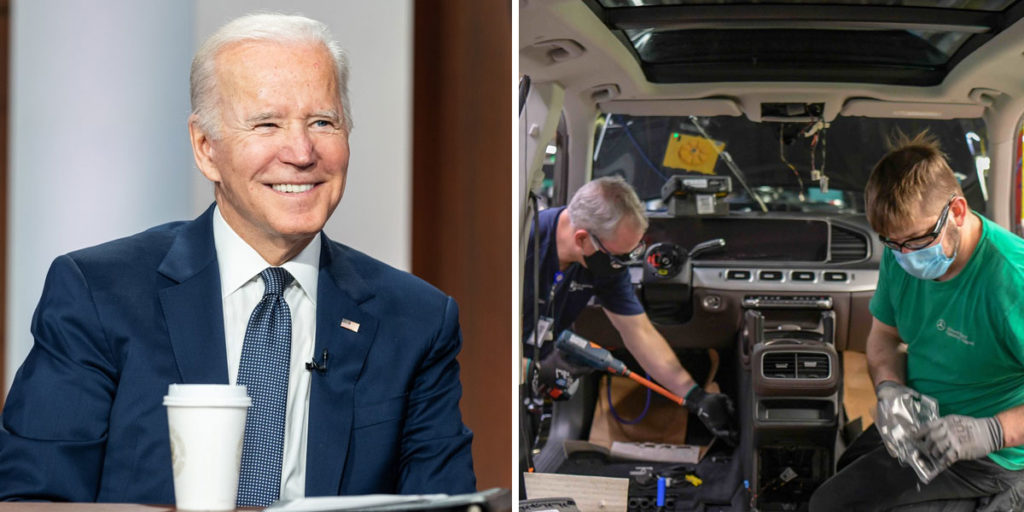Imagine there’s a simple way to save your family money, help the environment and support the creation of American jobs in one simple step.
It’s not science fiction. It’s the reality for motorists who have chosen to drive electric vehicles (EVs) instead of gasoline-powered cars and trucks and explains how EVs have emerged as the fastest-growing transportation vehicle segment.
Anyone wanting to get an up-close look at electric vehicles and learn more about them can visit The Market at Pepper Place in Birmingham (in the parking lot in front of Betolla restaurant on Third Avenue South) on Saturday, Oct. 3. Electric car owners will be on hand from 8 a.m. until noon as part of a National Drive Electric Week EVent co-sponsored by the Alabama Clean Fuels Coalition (ACFC), UAB Sustainability, Alabama Power Company, the City of Birmingham and the Zero Emissions Owners Group (ZEOG).
Several precautionary measures have been put in place in recognition of the current COVID-19 pandemic. Masks will be required for all participants, and the reserved EV parking spaces in front of Bettola Restaurant have been expanded to promote social distancing.
The electric vehicle movement has gained traction in Alabama – and throughout the country.
In July, Gov. Kay Ivey announced the Alabama Electric Vehicle Infrastructure Plan, which the Alabama Clean Fuels Coalition and the Alabama Department of Economic and Community Affairs developed to set short and long-term strategies to guide expansion of electric vehicle charging stations throughout the state. Currently, there are approximately 400 EV charging outlets at 149 different public charging stations in Alabama.
The Alabama Clean Fuels Coalition is working on a collaborative effort with 13 other states to develop branded, state-specific EV programs, launch local EV “chapters,” and expand current stakeholder outreach and education efforts to increase EV adoption rates across consumer and fleet markets.
Alabama has also emerged one of the nation’s leading states for automobile manufacturing. Automobile plants in at least 20 states are now building electric vehicles, creating thousands of new jobs. Mercedes-Benz is leading the charge in Alabama with a $1 billion, 600-job expansion that includes all-electric vehicle production and a state-of-the-art battery factory in Bibb County. DURA Automotive Systems announced in late August an investment of $59 million to open a manufacturing facility in Muscle Shoals that will produce battery trays for electric vehicles.
As major automakers increasingly produce electric vehicles every year, American consumers have taken notice and embraced the new technology. Through July 2020, more than 1.5 million plug-in vehicles have been sold in the United States and the rate is accelerating as more electric cars hit the market.
There are already 50-plus domestic models of electric vehicles, and it’s estimated the number could balloon to 120-plus by 2022.
The U.S. EV market is expanding rapidly, with sales surging 86% in 2018, according to a recent report from the Alabama Transportation Institute, and one estimate suggests there could be 3 million electric vehicles on U.S. roads by 2025. More than 1 million plug-in vehicles have been sold.
It’s easy to see why. Driving on electricity is about five times cheaper than fueling with gasoline, and consumers are finding it’s more convenient to simply plug in when you arrive home than stop at a gas station for a fill-up.
Electric vehicles are cheaper to maintain because there are no oil changes and have 10 times fewer moving parts than a gasoline-powered car.
All-electric vehicles have no tail pipe emissions and, even taking into account the emissions from the electricity produced to charge EVs, the vehicles on average emit significantly less CO2 than conventional vehicles. At the height of COVID-19 stay-at-home orders in early 2020, vehicle emissions in the United States and United Kingdom fell by a third due to fewer drivers on the road. As we wrote in a May op-ed, wider use of electric vehicles and the other domestically produced alternative fuels would lessen America’s dependence on foreign oil while also helping our environment.
Not only are EVs good for the environment, but these smooth, quiet vehicles are also fun to drive. EVs possess high torque, even at low speeds, which translates into instant accelerator response.
In response to more Alabamians discovering electric vehicles, the National Drive Electric Week EVent in Birmingham on Oct. 3 provides a prime opportunity for anyone to learn more about EV technology by talking to real EV owners.
Electric vehicles give off zero emissions, are economical to drive and provide good, high-paying jobs for Alabamians. That’s a win-win-win scenario that benefits us all.
Mark C. Bentley has served as the executive director of the Alabama Clean Fuels Coalition since August 2006.
About the Alabama Clean Fuels Coalition
Alabama Clean Fuels Coalition serves as the principal coordinating point for clean, alternative fuel and advanced technology vehicle activities in Alabama. ACFC was incorporated in 2002 as an Alabama 501c3 non-profit, received designation U.S. Department of Energy’s Clean Cities program in 2009 and was re-designated in 2014. A national network of nearly 100 Clean Cities coalitions brings together stakeholders in the public and private sectors to deploy alternative and renewable fuels, idle-reduction measures, fuel economy improvements and emerging transportation technologies.













